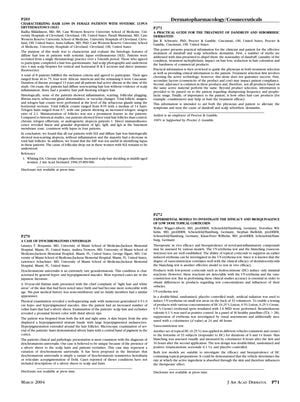A Practical Guide for the Treatment of Dandruff and Seborrheic Dermatitis
March 2004
in “
Journal of The American Academy of Dermatology
”

TLDR Patients with systemic lupus erythematosus and hair loss had non-scarring alopecia with fewer hair follicles, and direct immunofluorescence did not help identify lupus.
The study aimed to characterize the histologic features of diffuse hair loss in patients with systemic lupus erythematosus (SLE). Over a 3-month period, 8 patients from a single rheumatology practice, aged 46 to 75, were recruited. They completed a hair loss questionnaire, had scalp photographs taken, and underwent scalp biopsies. The patients had active SLE and exhibited diffuse non-scarring hair loss without scalp inflammation. Histologic examination showed no inflammation, scarring, or other abnormalities, but a decrease in total hair follicles was noted, with one patient having an increased telogen to anagen ratio. Direct immunofluorescence (DIF) revealed lupus in four patients. The study concluded that patients with SLE and diffuse hair loss had non-scarring alopecia with a decrease in total hair follicles, and DIF was not useful for identifying lupus in these cases. The underlying cause of follicular drop out in these patients remains unknown.

